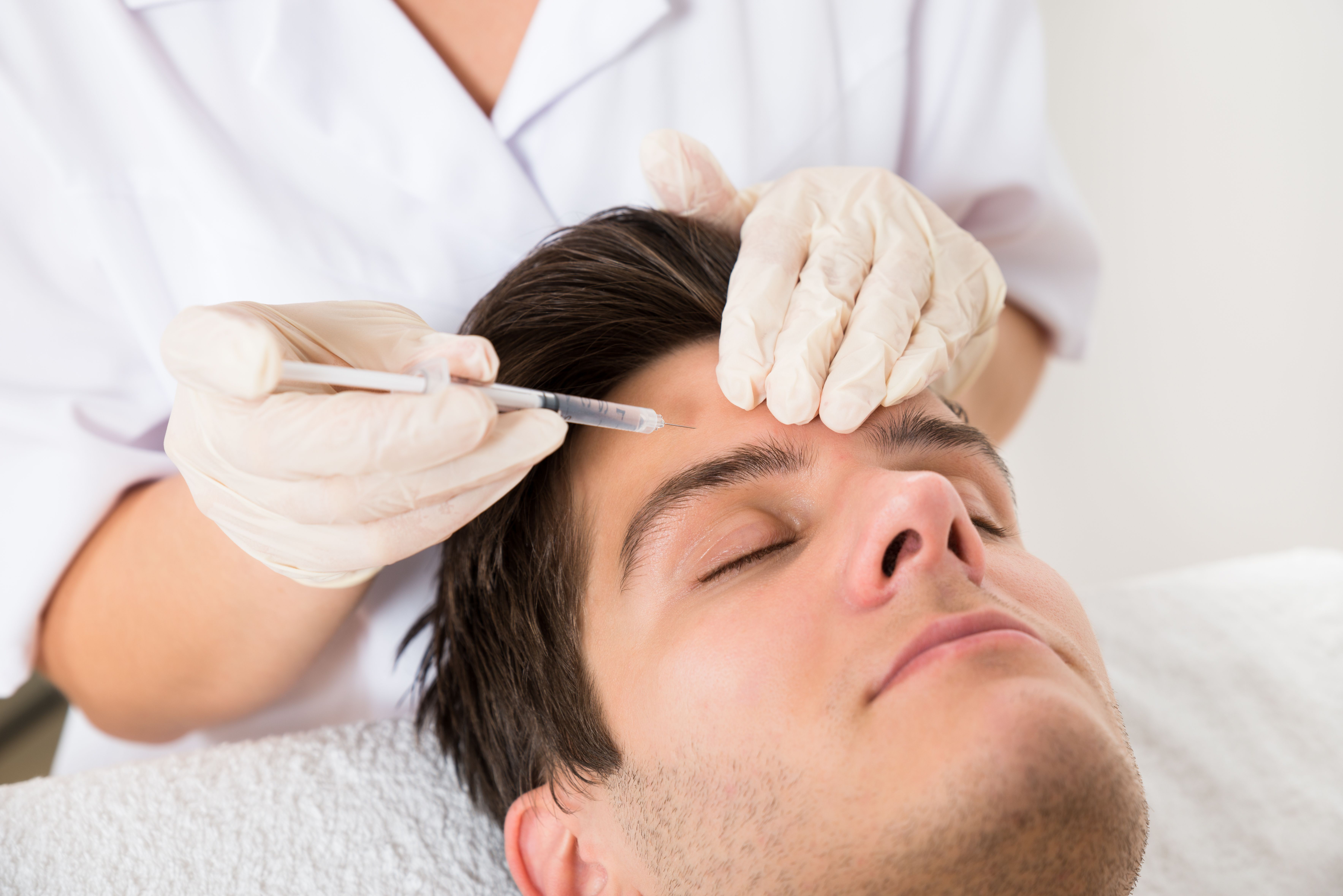- Acne
- Actinic Keratosis
- Aesthetics
- Alopecia
- Atopic Dermatitis
- Buy-and-Bill
- COVID-19
- Case-Based Roundtable
- Chronic Hand Eczema
- Chronic Spontaneous Urticaria
- Drug Watch
- Eczema
- General Dermatology
- Hidradenitis Suppurativa
- Melasma
- NP and PA
- Pediatric Dermatology
- Pigmentary Disorders
- Practice Management
- Precision Medicine and Biologics
- Prurigo Nodularis
- Psoriasis
- Psoriatic Arthritis
- Rare Disease
- Rosacea
- Skin Cancer
- Vitiligo
- Wound Care
News
Article
Rules & Regulations on Cosmetic Procedures: Where Are They?
Author(s):
Undefined rules of who can perform cosmetic procedures create an increased risk of compromised results.
Renata Block, MMS, PA-C

How many patients have you had come into your practice wanting you to "fix" the aesthetic procedure done at a non-dermatology/plastic surgery office? Have you ever considered the regulations of cosmetic courses/boot camps and other educational cosmetic injection programs, and who can complete these courses? I have lately, and it has me thinking.
There has been exponential growth in the aesthetic industry in the past 20 years. It is projected to reach over $270 billion by 2024. Neuromodulators and fillers are becoming the norm in society and are performed by many professions. And most notably, the use of Botox injections increased by an astounding 845% between 2000 – 2018.1 However, where do we draw the line on who can inject?
The aesthetic industry has governmental body oversight regarding the licensure of professionals, but the horror stories continue. So why are we allowing those who should have proper training or foundational skills (i.e., residency, years of dermatology/plastic surgery practice) to continue this artistry that takes many years to perfect? Certain professions can inject based on individual state laws, and there is no requirement to be trained in dermatology or plastic surgery. Furthermore, "by law, estheticians and cosmetologists can only perform injections, including Botox, under the authority of a physician. Enforcement of this statute lies with the Texas Medical Board (TMB), not the Texas Department of Licensing and Regulation (TDLR)."2
The following statement is from the website of the American Med Spa Association:
"As injections fall under the practice of medicine in all states, persons who do not have prescriptive authority or the licensed scope of practice are not able to inject on their own. As such, while a trained medical assistant may be able to inject when ordered and supervised by a physician, they cannot perform this treatment on their own. Injecting or performing exams without a license is considered the unlicensed practice of medicine."3 The term "medical assistant" is confusing.
We should remember that neuromodulators, fillers, and other cosmetic injectables are FDA-regulated drugs that are technically a "prescription." So why are individuals who cannot write a prescription artistically injecting into a patient’s face? When obtaining our license, we all learn to practice within the scope of our degree, but who is in charge of defining this scope when it comes to cosmetics? Who is providing the direction to ensure the right professionals do the injections properly? The American Board of Aesthetic Medicine is an independent specialty board that was established to standardize the pathway for physicians coming from a non-cosmetic background to be certified in aesthetic medicine. It is also important to note that there is not one governing/accreditation body for aesthetic medicine and standards vary from state to state, as well as by license and certification.
Furthermore, The American Association of Aesthetic Medicine and Surgery offers a comprehensive, 2-day hands-on training program4 consisting of 2 modules, including live hands-on training where each trainee gets an instructor. Students qualified are those with licenses such as an MD, DO, PA, NP, RN, or dentist. However, many other cosmetic courses are available, but how comprehensive are they regarding on-site hours, who is conducting the training, and who is allowed to attend? For example, it is known that many dentists, gyneocologists, pediatricians, family doctors, and ER physicians opened med spas or performed injections without formal training in dermatology or plastic surgery. Unfortunately, many advanced practice providers (APPs) that have been practicing dermatology for years cannot practice aesthetics within their clinic.
It is evident that when each licensed professional, whether it be a nurse, esthetician, NP, PA, MD, DO, or dentist, with their baseline training, in all fairness, we are on an even cosmetic playing field with the knowledge acquired while obtaining our degree, except for dermatologists and plastic surgeons, of course, who specialize in this practice of injecting neuromodulators and fillers with 4 and 6 years of residency respectively. Anyone can learn and become proficient in the craft they specialize in, so we have continued education beyond our degrees. We should all powerfully advocate for education as it is mandatory for the human spirit and growth. However, not allowing experienced dermatology APPs the chance to expand their medical knowledge and skills can lead to a disservice to the patient and the patient going to another provider without any baseline knowledge in dermatology or plastic surgery.
The topic brings me to APPs and their training, which is quite extensive regarding the basis of medical/nursing practice within their scope (physician assistant/nurse practitioner), just as it is for medical doctors, nurses, and estheticians. Still, when the opportunity to inject differs between the two professions, such as a dermatology PA/NP, or is offered to someone with a lesser degree or no degree needs to be corrected. In the end, APPs have advanced degrees and can prescribe. APPs also are trained and practice under their board-certified dermatologist/plastic surgeon with a collaborative agreement that extends into dermatology practice. We know a thorough understanding of facial anatomy takes years, and working closely with a physician and continuing education is critical. Becoming familiar with the many fillers available and understanding their respective injection techniques is essential and good practice.5
Andrey Popov/AdobeStock

A medical professional specializing in dermatology and plastic surgery will thoroughly evaluate any specific areas of concern, understand what the patient hopes to get from the procedure, and review what to expect before, during, and after the treatment to ensure the best cosmetic outcome. Having these foundational skills is what they are trained in.6 They will also have the necessary tools and knowledge to intervene if something goes wrong.
Many states consider injections a "practice of medicine." Therefore, the provider should be "well-trained, the best product must be used, and indications, contraindications, proper aseptic injection techniques, and adequate localization for each specific filler to be injected should be respected."5 In the end, all APPs in the field of dermatology or plastic surgery should have the opportunity to enhance their medical skills within the aesthetic industry; however, in general, we need better regulation regarding the extent beyond the specialty as well as allow estheticians, medical assistants, anyone without a medical degree or the foundational knowledge of dermatology or plastic surgery to inject.
References
- Balasubramanian S. Anti-aging and aesthetic medicine: the silent rise of this multibillion dollar industry. Forbes. Published January 28, 2020. Accessed May 10, 2023.https://www.forbes.com/sites/saibala/2020/01/28/anti-aging-and-aesthetic-medicine-the-silent-rise-of-this-multibillion-dollar-industry/?sh=4f5c685961ad
- Bill analysis. Schwertner Business & Commerce: Senate Research Center. Published March 17, 2023. Accessed May 10, 2023.
- Moeller M. What Are the Rules for Who Can Inject Neurotoxins? American Med Spa Association. Accessed May 16, 2023. https://americanmedspa.org/blog/what-are-the-rules-for-who-can-inject-neurotoxins
- Medical aesthetics training courses for Nurses & Physicians. The American Association of Aesthetic Medicine and Surgery (AAAMS). July 27, 2023. Accessed August 29, 2023. https://aaams.net/courses/.
- Haneke E. Managing complications of fillers: rare and not-so-rare. J CutanAesthet Surg. 2015 Oct-Dec;8(4):198-210. doi: 10.4103/0974-2077.172191.
- Liu K. Dermal fillers: the good, the bad, and the dangerous. Published January 7, 2020. Accessed May 10, 2023. https://www.health.harvard.edu/blog/dermal-fillers-the-good-the-bad-and-the-dangerous-201907152561
Editor’s note: The opinions expressed in this article are those of the author and do not necessarily reflect the opinions of Dermatology Times or its parent company.
Newsletter
Like what you’re reading? Subscribe to Dermatology Times for weekly updates on therapies, innovations, and real-world practice tips.














